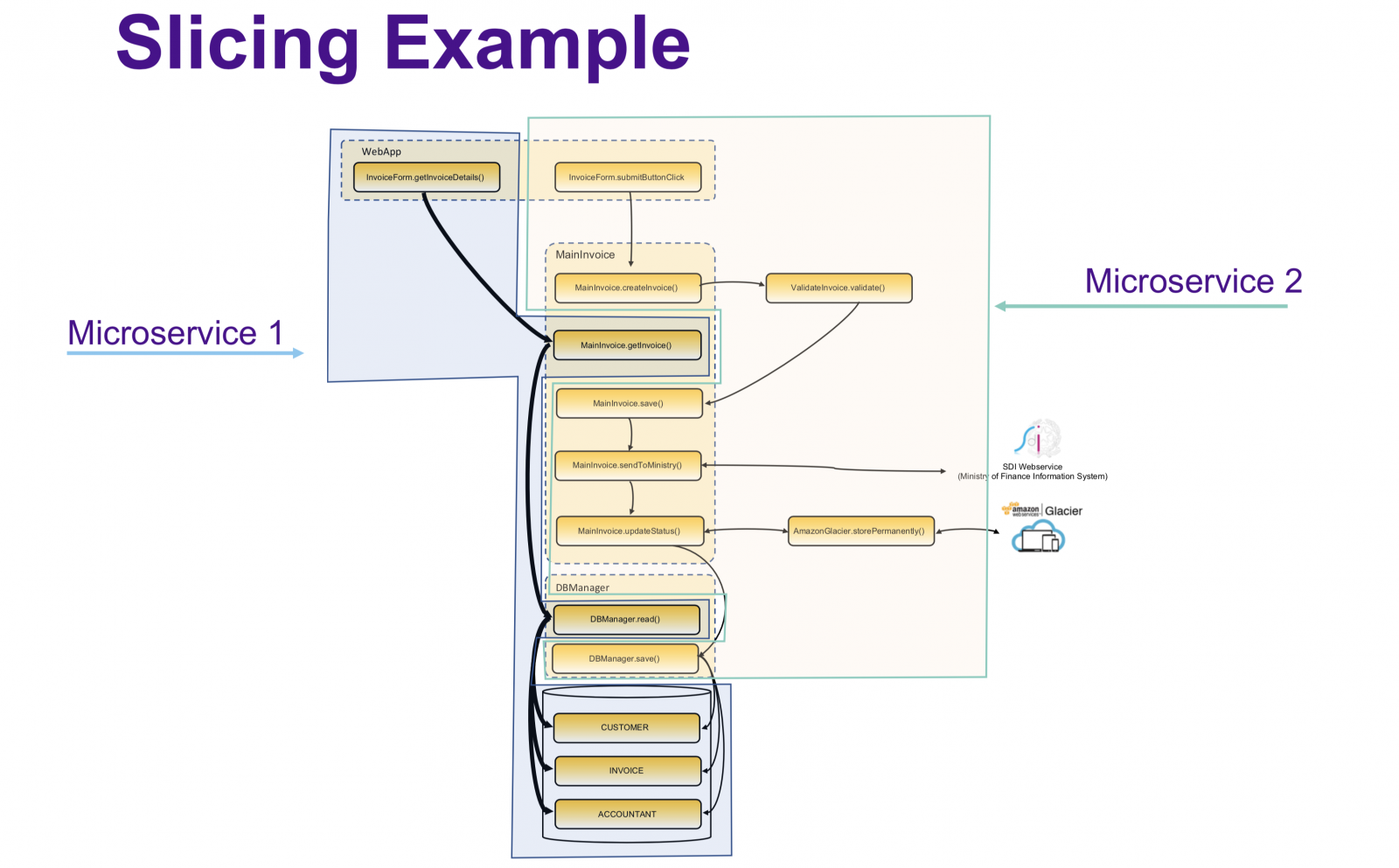Decomposition is one of the most complex tasks during the migration from monolithic systems to microservices, generally performed manually, based on the experience of the software architects.
In this work, we propose a 6-step framework to reduce the subjectivity of the decomposition process. The framework provides software architects with a set of decomposition options, together with a set of measures to evaluate and compare their quality. The decomposition options are identified based on the independent execution traces of the system by means of the application of a process-mining tool to the log traces collected at runtime.
We validated the process, in an industrial project, by comparing the proposed decomposition options with the one proposed by the software architect that manually analyzed the system. The application of our framework allowed the company to identify issues in their software that the architect did not spot manually, and to discover more suitable decomposition options that the architect did not consider.
The framework could be very useful also in other companies to improve the quality of the decomposition of any monolithic system, identifying different decomposition strategies and reducing the subjectivity of the decomposition process. Moreover, researchers could extend our approach increasing the support and further automating the decomposition support.
Check out our paper [1] and the related slides presented by Davide Taibi at CLOSER 2019.
[1] D. Taibi and Systa, K. , “From Monolithic Systems to Microservices: A Decomposition Framework based on Process Mining”, in 9th International Conference on Cloud Computing and Services Science, CLOSER , 2019, Heraklion (Greece), 2019. Download

